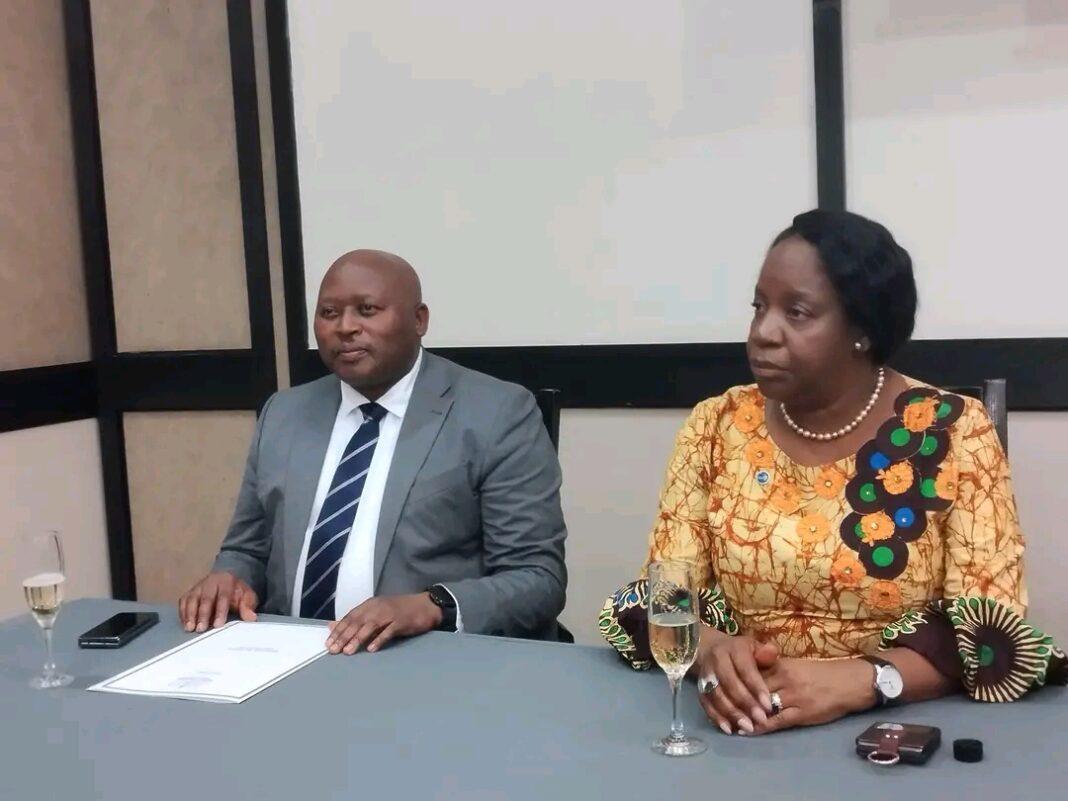Ntsoaki Motaung
Lesotho has officially joined the trade players and became the 23rd member of the Tripartite Free Trade Area Agreement (TFTA), following the signing ceremony last Friday in Maseru and The Minister of Trade, Industry, Business Development, and Tourism, Mokhethi Shelile, represented the government during the signing.
The TFTA is a collaborative initiative encompassing 26 Member States from three of Africa’s Regional Economic Communities: the Common Market for Eastern and Southern Africa (COMESA), the East African Community (EAC), and the Southern African Development Community (SADC).
Shelile emphasised the imperative outlined in the country’s National Strategic Development Plan II (NSDP II) to reform its economy and steer it towards producing goods and services for both regional and international markets.
“The need to define a future that is characterised by the capacity to produce goods and services for the Regional, Continental, and other markets,†he said.
The overarching goal of this tripartite partnership is to advance the Sustainable Development Goals (SDGs) by promoting economic integration in the region, ultimately leading to sustainable economic development, poverty reduction, and an improved quality of life for people in Eastern and Southern Africa.
He underscored the significance of Lesotho’s accession to the Tripartite Free Trade Area Agreement, recognising it as a critical step towards establishing a market for Lesotho’s Micro, Small, and Medium Enterprises.
Shelile stated: “This is more so particularly when considering the fact amongst these their regional economic communities remain low compared to trading with other parts of the world like the United States of America and Europe. It is therefore obvious that the low of interregional trade constitutes one of the deifying characteristics of our continuing poverty.â€
The minister also highlighted the transformative potential of the TFTA, extending beyond market access to encompass industrial and infrastructure development pillars.
“These elements are critical to Lesotho’s growing economy. For this reason, Lesotho considers the TFTA an important tool for accelerating developmental aspirations.â€
Angele Makombo Ntumba, the Deputy Executive Secretary for SADC Regional Integration, hailed Lesotho’s commitment to regional and continental cooperation through its signing of the TFTA.
Ntumba highlighted the unifying force of the TFTA, consolidating the markets of COMESA, EAC, and SADC to create a formidable $1.6 trillion market, accounting for 59 percent of Africa’s Gross Domestic Product (GDP) and serving approximately 834 million customers.
She underscored the critical role the operationalisation of the TFTA will play in expanding small and medium-sized businesses.
“The operationalisation of the TFTA is crucial for expanding small and medium businesses,†she said and also emphasised the TFTA agreement’s pillars on market integration and infrastructure development.
Chileshe Mpuwdu Kapwepwe, the Secretary-General of COMESA, explained that by integrating economies, the TFTA can surmount persistent barriers among different economies.
She expressed optimism about the transformative potential of this collaboration in advancing economic goals and securing a better future.
Kapwepwe also commended the government of Lesotho for its active participation in finalising the tariff commitments within the East African Community and the Southern African Customs Union.
Meanwhile, Fako Hakane from the Lesotho Chamber of Commerce and Industry (LCCI) highlighted the pivotal advantages of Regional Economic Communities, particularly in creating a larger economic space for the production and sale of goods and services.
Hakane said that the free movement of goods and services across these regions will promote prosperity and economic growth.
He said: “With this signing ceremony we are hopeful that the transformation of Lesotho from a consumer-based economy to a producer-based economy shall be achieved.â€
He urged the government to fast-track the ratification process to set progress in motion.




